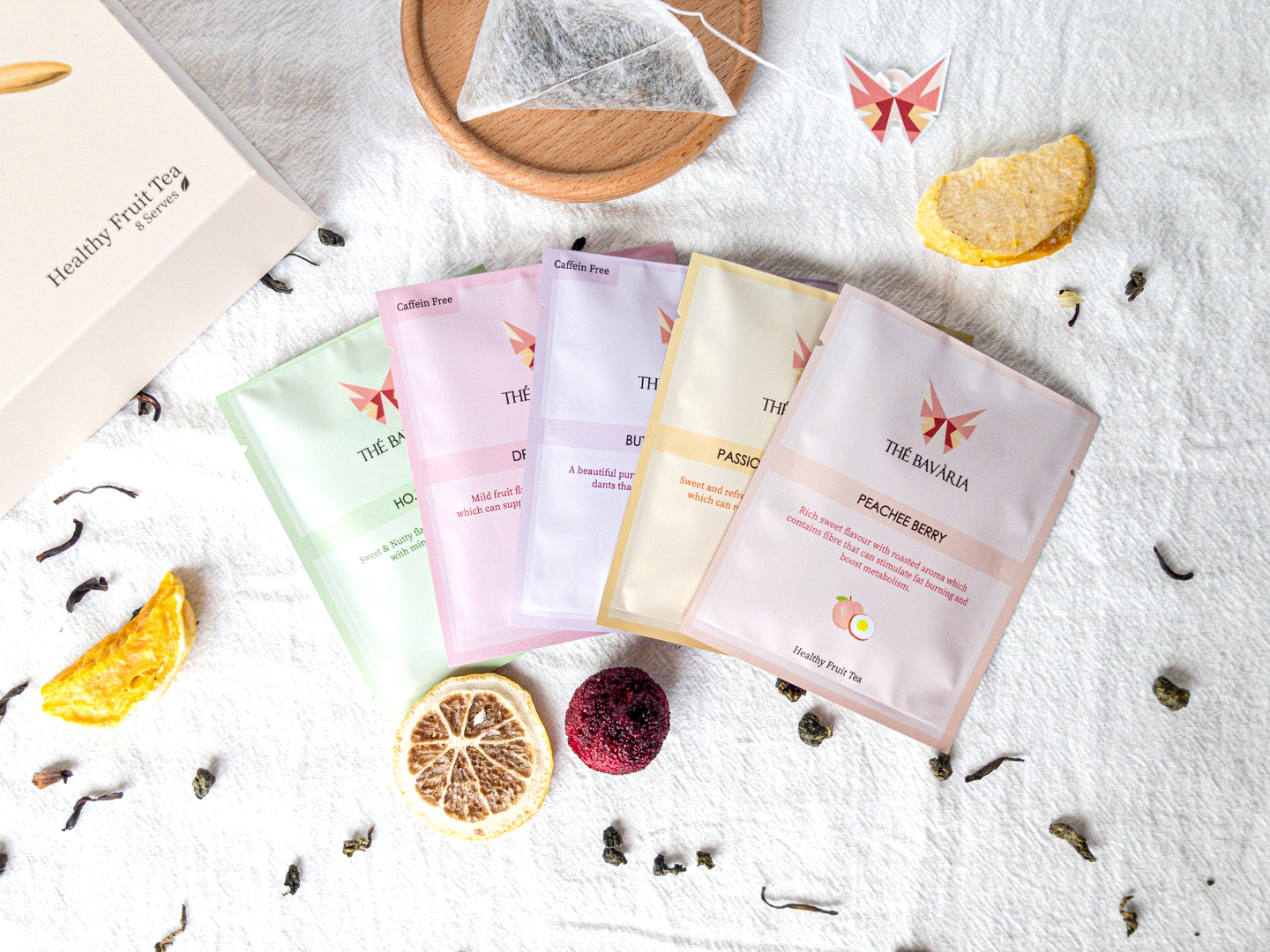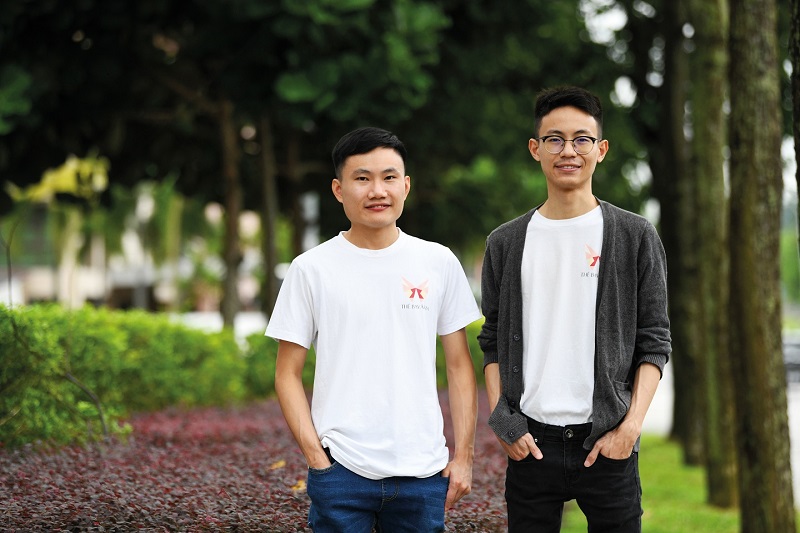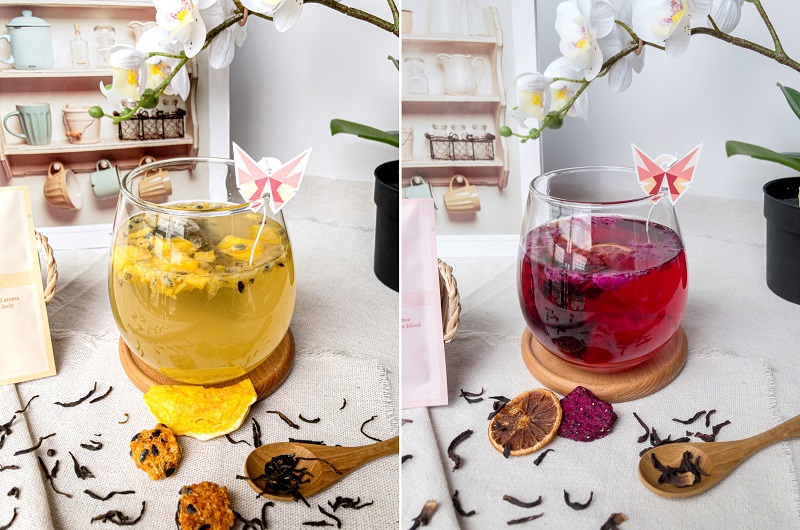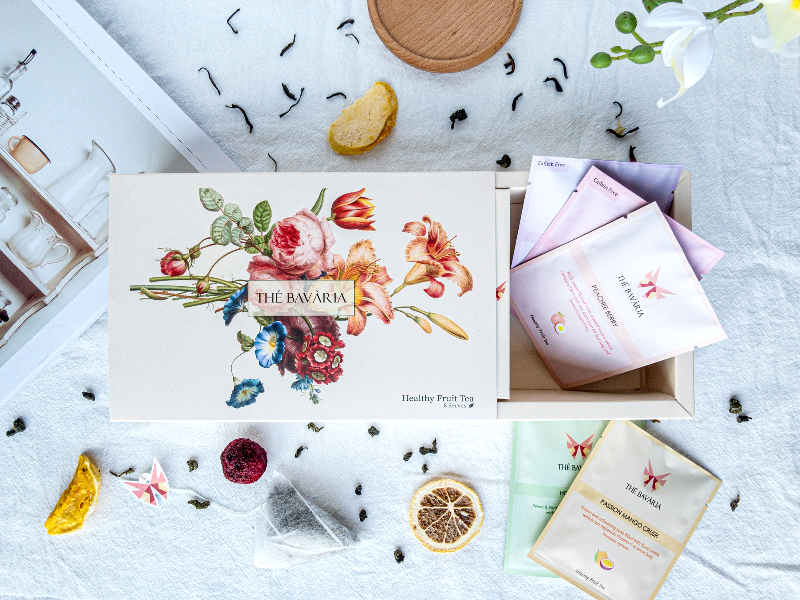
One sachet of The Bavaria’s tea can be used up to three times (Photo: The Bavaria)
Kenny Tan and Liaw Chee Quan studied and worked together in Australia before they decided to come back to Malaysia in 2020 to start their own IT business, focusing on helping people design websites and build software. “Kenny noticed that I was not really interested in this field. I was more interested in the food industry, because I love food and love to eat. So we decided to also venture into F&B,” Liaw says.
Working as programmers, both of them spent a lot of time — at least eight hours a day — in front of the computer. “We normally energised ourselves by drinking coffee. That’s a common thing in Malaysia, as well as Australia. So we were thinking of an alternative for coffee because all of us know that drinking too much of it is not good for health. It can affect our sleeping pattern, which will then affect our daily life.”
The duo tried some brands in the market as well as homemade floral and flavoured teas, but were not satisfied with the taste. Some contained good ingredients but tasted bad, they noted. “We were thinking of creating something that was tasty and healthy at the same time, targeting those who spend long hours in front of the PC and need something to keep them awake and motivated.”
Tan and Liaw roped in two friends, Chew Zhi Wei and Khaw Wei Jing, to help them set up the business. Chew, who works full-time as a food scientist at an OEM company, was tasked with developing product recipes, while Khaw, a civil engineer who was looking to try something new outside his profession, helped with marketing.
20221114_peo_the_bavaria_founder_10_lyy.jpg

Launched in March this year, The Bavaria — named after the largest state in Germany — offers flavoured tea using freeze-dried ingredients such as Butterfly Lemon (blue pea flower with lemon), Dragon Hana (hibiscus flower with dragon fruit), Hoji Melon (hojicha with lavender and candied melon), Passion Mango Crush (mango with passion fruit) and Peachee Berry (peach with bayberry).
How did the quartet choose these flavours? Chew conducted market research to find out common tastes among the locals. “We tried to tailor the taste according to Malaysians’ [palate]. We learnt the crowd loves lemon, passion fruit and melon the most. So based on that, we created recipes by combining ingredients to see which pairing would work.”
While Chew was the one responsible for developing the recipes, all four would join the tea tasting. “She would prepare different combinations of teas and the others would give feedback,” Tan says.
“At the beginning of production, we experimented with dried fruit, but the taste wasn’t good because dried fruit does not really have a strong flavour when mixed with hot water. We can only smell the fruit a little but, overall, the taste is bland. As for freeze-dried, when you put it in hot water, it will partially dissolve and the tea will be more flavourful.”
the_bavaria_fruit_teas.jpg

The partners chose freeze-dried fruits and flowers as the main ingredients for their tea. Freeze-drying has more benefits than normal drying, Tan shares.
“Dried fruit is made using heat and it actually causes the fruit to lose a lot of its nutrients, while freeze-drying is a new technology that freezes food to remove water or other solvents for preservation purposes. It retains the nutrients and give a crunchy texture to the fruit,” he says.
The Bavaria is working with local manufacturers who are able to provide them quality and affordable ingredients while they sort out production and packaging themselves. They use aluminium packaging, designed by Tan, as it is more suitable and safe for the tea. “It helps keep the substances fresh, allowing them to last longer compared with plastic packaging,” Liaw claims.
The tea expires six months from its production date. Each sachet can be used up to three times, or until it loses its taste once it is mixed with hot water. “Most people don’t know that the second bancuh of tea is actually better than the first one. You can reuse it for more than two times until the taste is not there anymore.”
the_bavaria.jpg

Tan and Liaw admit it is difficult to break into the market as coffee is still the go-to drink among locals. “We are trying to increase our brand awareness in Malaysia. We are exploring opportunities by giving out samples to vendors and collaborating with other brands so more people will be familiar with our products,” Tan says, adding that looking at the business from the customers’ point of view is important.
While production is done at their studio office in the Klang Valley, they hope to work with manufacturers in the future as they plan to increase their offerings, giving customers the option to customise their tea by selecting the combination of ingredients they want. They are also looking for an opportunity to sell their products in universities, targeting students who rely on coffee to keep them energised.
This article first appeared on Nov 28, 2022 in The Edge Malaysia.


